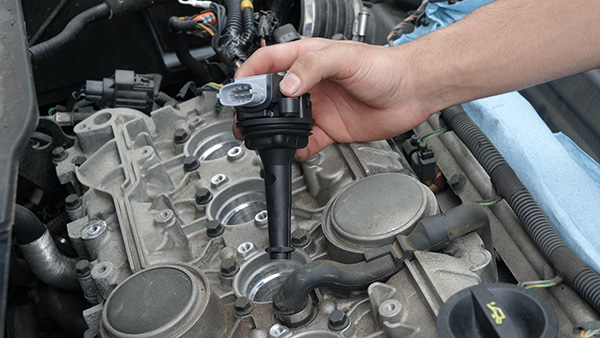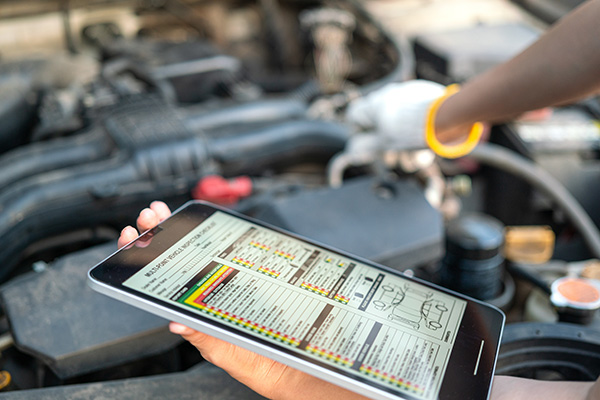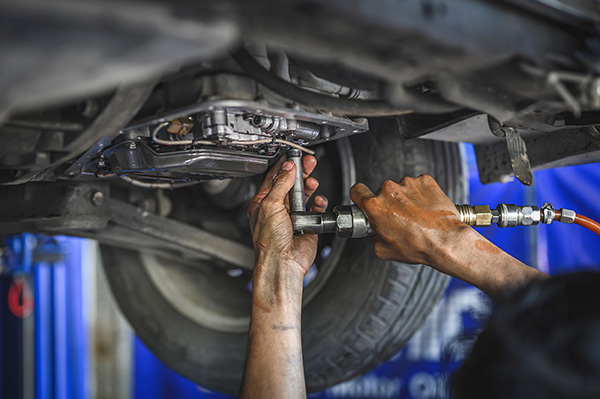Posted on 3/28/2025

Your transmission is one of the most important parts of your vehicle, working behind the scenes to transfer power from the engine to the wheels. When it’s running properly, shifting gears feels effortless. But when a transmission overheats, it can lead to performance problems, expensive repairs, or even complete failure. The problem is that most drivers don’t realize their transmission is overheating until it’s too late. By the time you notice sluggish shifting, slipping gears, or a warning light on the dash, the damage may already be done. So, what’s causing the heat buildup, and how can you stop it before it becomes a bigger issue? How Overheating Affects Your Transmission A transmission operates best when its temperature stays within a safe range of 175°F to 200°F. If the temperature rises above this range, transmission fluid begins to degrade, losing its ability to properly lubricate and cool the system. As a result, metal compone ... read more
Posted on 2/28/2025

Life gets busy, and it's easy to push car maintenance down on the priority list. Oil changes, brake inspections, fluid replacements—these things don’t always seem urgent until a warning light appears on the dashboard. But skipping factory-recommended maintenance can do more than just put a dent in your car’s performance. It can lead to costly breakdowns, lower fuel efficiency, and even safety risks on the road. Ignoring routine service might not show immediate consequences, but over time, neglecting factory maintenance will take a toll. From worn-out brakes to a failing transmission, small issues can snowball into major repairs that could have been avoided. How Skipping Maintenance Hurts Your Car Every part of your vehicle is designed to work together efficiently. When one component starts to wear out, it can put extra stress on other systems. A simple service appointment might feel unnecessary at the time, but it plays a critical role in preve ... read more
Posted on 1/31/2025

Your vehicle’s ignition coils play a crucial role in its performance. They convert the battery’s voltage into the high-voltage charge necessary to create a spark in the spark plugs, which ignites the fuel-air mixture in your engine. However, ignition coils wear out over time, leading to performance issues and potentially leaving you stranded if not addressed. So, how can you tell if your ignition coil is failing? Let’s explore some warning signs and their implications for your vehicle. Misfiring or Rough Engine Performance One of the most noticeable signs of a failing ignition coil is engine misfiring. You might feel your car hesitate, jerk, or sputter, especially when accelerating. This happens because the ignition coil is not supplying enough voltage to the spark plugs, causing an inconsistent combustion process. Left unchecked, misfiring can lead to increased emissions, decreased fuel efficiency, and even damage to other engine components like th ... read more
Posted on 12/20/2024

If you’ve ever felt uncertain about what happens during a car inspection, you’re not alone. Traditional vehicle inspections often leave drivers uninformed, relying on verbal explanations and notes that may not provide a complete picture. Digital Vehicle Inspections (DVIs) are a game changer for car maintenance. These inspections integrate technology and transparency, allowing you to see a clear, detailed assessment of your car’s health without guessing or depending solely on a professional's word. But how do these inspections actually work? What Is a Digital Vehicle Inspection A digital vehicle inspection is exactly what it sounds like—a modernized version of the traditional car checkup. Instead of relying solely on pen, paper, and verbal communication, technicians use tablets or specialized devices to document everything they find during the inspection. Photos, videos, and detailed notes are all compiled into a digital report that’s ... read more
Posted on 11/29/2024

Taking care of your car involves more than just regular tire checks or oil changes. One of the most crucial components that often gets overlooked is the transmission. The transmission fluid keeps your car running by lubricating the transmission's moving parts. But how often should you change this fluid? Let’s explore why it matters and how to know when it’s time to give your car’s transmission some much-needed attention. What Does Transmission Oil Do Before we jump into how often it should be changed, let’s take a quick look at what transmission oil actually does. This vital fluid helps cool, lubricate, and clean the transmission, which is responsible for shifting gears in your vehicle. Whether you're driving a manual or automatic car, the transmission is what ensures your engine's power is transferred to the wheels in the most efficient way. Without proper lubrication, the parts inside the transmission can wear out faster, causing ... read more